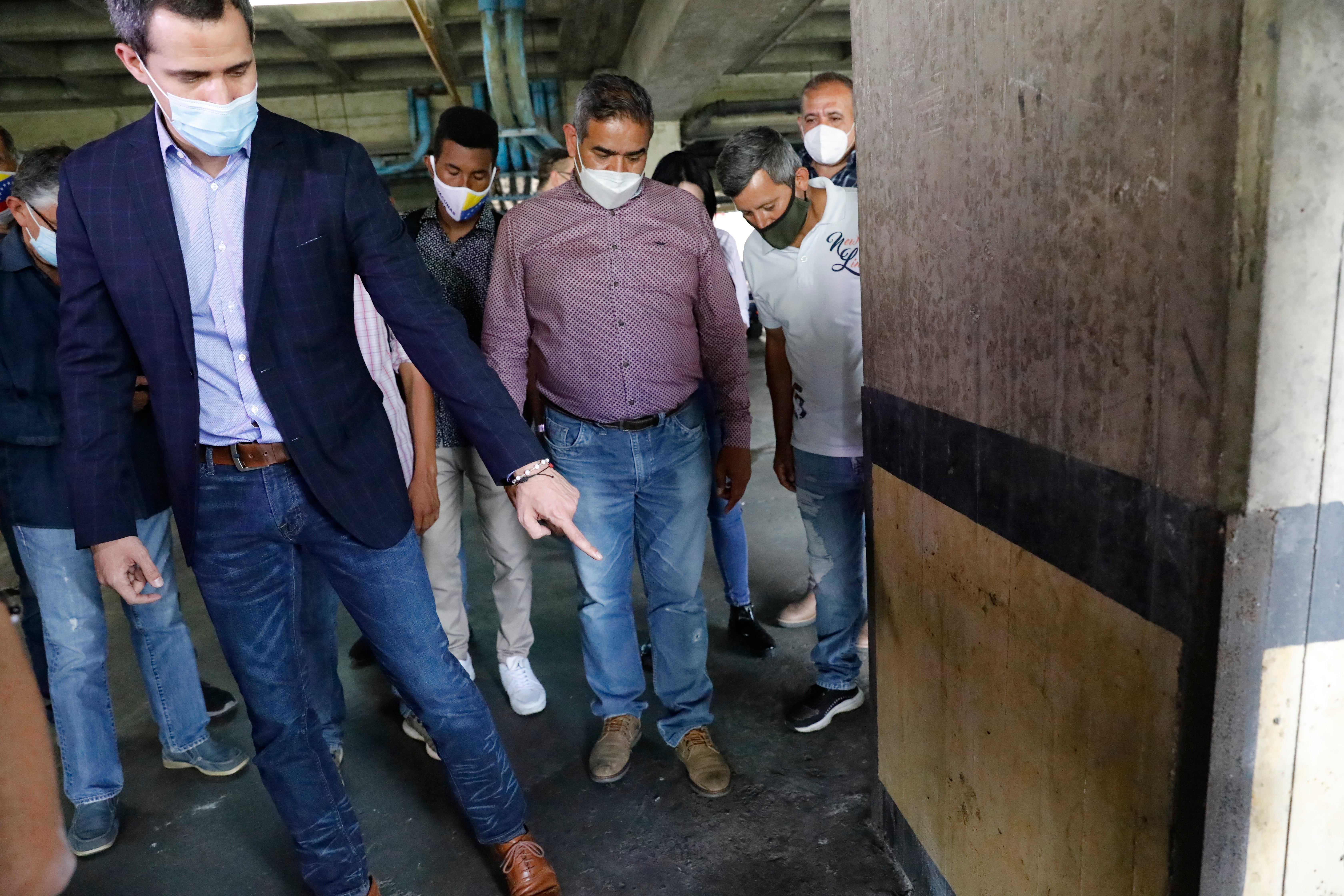UK gov't backs Guaidó claim in fight for Venezuelan gold
The British government is seeking to prevent Venezuelan leader Nicolas Maduro from gaining access to nearly $2 billion in gold held by the Bank of England

Your support helps us to tell the story
From reproductive rights to climate change to Big Tech, The Independent is on the ground when the story is developing. Whether it's investigating the financials of Elon Musk's pro-Trump PAC or producing our latest documentary, 'The A Word', which shines a light on the American women fighting for reproductive rights, we know how important it is to parse out the facts from the messaging.
At such a critical moment in US history, we need reporters on the ground. Your donation allows us to keep sending journalists to speak to both sides of the story.
The Independent is trusted by Americans across the entire political spectrum. And unlike many other quality news outlets, we choose not to lock Americans out of our reporting and analysis with paywalls. We believe quality journalism should be available to everyone, paid for by those who can afford it.
Your support makes all the difference.The British government sought Monday to prevent Venezuela’s Nicolas Maduro from gaining access to nearly $2 billion of gold held by the Bank of England as the U.K. Supreme Court started hearing a case that hinges on the question of who should be considered the Latin American nation’s president.
Britain told the court that its recognition of opposition leader Juan Guaidó as president is clear and longstanding, and therefore he is the person authorized to decide how the gold held by Britain’s central bank should be used. The government’s statement came after a lower court said the U.K.’s recognition of Guaidó was “ambiguous.”
“The U.K. government has the right to decide who to recognize as the legitimate head of a foreign state,” the Foreign, Commonwealth and Development Office said in a statement. “The U.K. recognizes Juan Guaidó as president of Venezuela and consequentially he is the only individual recognized to have the authority to act on behalf of Venezuela as its head of state.”
Maduro has demanded access to the gold to help his cash-starved nation fight the coronavirus pandemic. But the Bank of England has refused to hand it over, citing the British government’s recognition of Guaidó.
Guaidó has sought to preserve the gold stash at the Bank of England to keep it out of the hands of the Maduro government, which it contends is illegitimate and corrupt.
Guaidó, who was the leader of Venezuela’s National Assembly challenged Maduro’s claim to the presidency, arguing that his 2018 election was rigged and invalid. Guaidó says he is the country’s interim president under provisions of the constitution that allow the head of the legislature to take power until free elections can be held.
Countries including the U.S. and United Kingdom have recognized Guaidó as the legitimate president of Venezuela, although China, Russia and many others have not and Maduro holds effective power within Venezuela.
The battle over the gold is being fought out between two competing governing boards of the Central Bank of Venezuela, one appointed by Maduro and the other by Guaidó.
Maduro’s lawyers argue that he is still president of Venezuela and that the U.K. has recognized this by continuing diplomatic relations with his government.
Leigh Crestohl, one of the lawyers representing the Maduro board, said the U.K. government’s position threatens the attractiveness of the City of London and the Bank of England as a secure place for foreign assets.
“International observers to this case may be surprised by the possibility that a unilateral statement of political recognition by the U.K. government can dispossess a foreign sovereign of assets deposited in London without any recourse in the English court,’’ Crestohl, a partner at the London-based law firm Zaiwalla & Co., said in a statement. “This is all the more so where that recognition ignores the reality on the ground.”